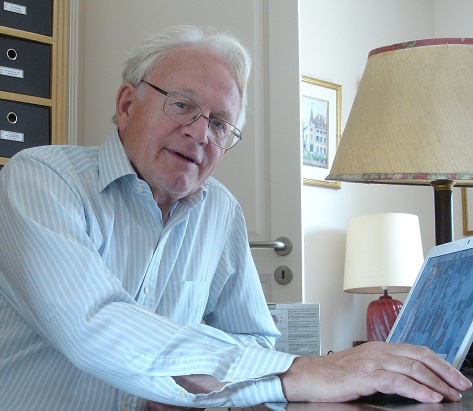One of the things the G20 summit made clear is the extent to which it has become impossible to hold any debate in Europe on the subject of the origins of climate change or the impact of environmentalist policies – even within European churches. There is unanimity of posture in the continent’s media, NGOs, and political parties across the spectrum. Having participated in a symposium of the Pontifical Academy of Sciences in September 2016 – in the presence of Intergovernmental Panel on Climate Change (IPCC) chair Hoesung Lee, Mr. Jeffrey Sachs, and eminent representatives of the Club of Rome – I unfortunately saw that the Roman Catholic Church has also aligned herself with the doctrine of the IPCC. Europeans who dissent are now entombed in silence.
President Donald Trump rendered Europe the service of restarting the debate when he pulled out of the Paris climate agreement. Without judging the full content of his announcement, much less his presidency or personality, it is worth examining from many perspectives.
The Paris agreement as a form of global governance
President Trump clearly exposed the Paris climate agreement’s risks to American self-determination. “Our withdrawal from the agreement represents a reassertion of America’s sovereignty,” he said. “Exiting the agreement protects the United States from future intrusions on the United States’ sovereignty and massive future legal liability.” European countries must realize that the agreement is a form of global governance which, without the principle of subsidiarity, threatens to become a Tower of Babel.
Economically self-defeating
President Trump said he withdrew from the agreement, because he refused to allow the United States to “continue to suffer this self-inflicted major economic wound.”
“We have among the most abundant energy reserves on the planet,” he said. “Yet, under this agreement, we are effectively putting these reserves under lock and key, taking away the great wealth of our nation.”
Europeans have mocked this, saying that utilitarian arguments cannot lead to sound morality. However, the economic and practical impact of policies must be taken into account and, when it is, the results are not so sanguine. For instance, Europeans proud of reducing their carbon footprint wish to hide their “outsourcing” of carbon emissions. They continue to purchase products from carbon-emitting firms; those goods are simply produced in China or elsewhere in Asia now. The result is that the environment is no better off and, as far as employment is concerned, it is self-defeating.
There is the risk that the jobs produced by artificially shifting to environmentally friendly products will produce a bubble. Politicians speak of “green growth.” But when these industries crop up because of market distortions, such as mandatory government spending and disincentives, the growth is not – to use a phrase they will understand – organic. Instead, consumers will reject the goods imposed upon them, and the green growth will be pared back.
Similarly, refusing to allow the U.S. to use its “abundant energy reserves” means that fewer goods and services will be produced, and people’s needs will go unmet.
Despite these evident blind spots, EU leaders have reacted violently to anyone who does not get on board. Witness the reaction of Nicolas Hulot, the French Minister of Ecology, who accused Donald Trump of committing a “crime against humanity.” In a century of true crimes, such as the Holocaust, the comparison seems particularly inexact.
The most developed nations pollute the least
Europeans too often forget that industries are the most ecologically efficient in the most developed countries. It would be wrong to dismiss as mere braggadocio Trump’s assertion that “the United States … will continue to be the cleanest and most environmentally friendly country on earth.” Western innovation, fueled by the free market, assures greater efficiency than less efficient economies striving to eke out a subsistence.
Developed nations are more ecologically friendly than other nations precisely because of the wealth generated by their scientific learning and economic/industrial practices.
Germany is a case in point. Its coal industry is notable for the environmental reclamation of old mines like Goitzsche, Frimmersdorf, and others. The large excavations have been transformed into lakes, and bare heaps of land have been transformed into massive forests. The undertaking has been successful enough that environmental NGOs now demand that these biodiversity areas be protected.
There is, in short, a strong argument that developed nations are more ecologically friendly than other nations precisely because of the wealth generated by their scientific learning and economic/industrial practices – and that the world is better off because of them.
From the scientific point of view
In withdrawing, President Trump said that “even if the Paris agreement were implemented in full, with total compliance from all nations … it would only produce a two-tenths of one degree … Celsius reduction in global temperature by the year 2100.” There is no doubt that Trump was fully informed about estimates made by both sides of the debate. The pressures he was subjected to, at the NATO summit, and then at the G7 summit in Toarmina on May 26, did not shake him, nor did reading Laudato Si, which Pope Francis had handed him two days earlier.
The United States has proven that open debate has unveiled important truths about the current state of climate science. The U.S. House of Representatives held one such debate on March 29. John Christy testified before the Committee on Science, Space, and Technology that it is essential to engage in the “testing of climate hypotheses” when developing climate models. However, the current consensus on all issues related to climate change has hurt the scientific study of the environment. At the same hearing, Dr. Judith Curry said that, in the politicized world of academia, “individual scientists and institutions have become activists ... and also fear funding cuts.” Because of this intellectual environment, she testified, “we’ve lost a generation of climate dynamicists. As a result, we are lacking the intellectual resources to understand important and challenging issues such as the effects of the sun on climate [and] the network of natural internal variability on multiple time scales.”
Some Catholic leaders reinforce the consensus
Sadly, a dominant strand within the Roman Catholic Church has excluded dissenting viewpoints. In France, a private debate chaired by Bishop Marc Stenger, who oversees environmental issues for the French Bishops Conference, has opposed myself and my brother, Philippe de Larminat, whose work in systems engineering has been internationally recognized, to the co-chair of Group 1 of the IPCC. Philippe de Larminat’s tests have led him to conclude “with a 90 percent probability level [that] one cannot reject the hypothesis of a null or insignificant anthropogenic contribution” to climate change and that solar activity is the primary explanation for “climate change.” Although statements were made to the effect that these minutes would be published, the bishop has not yet printed the minutes of this debate, which lasted for 12 hours.
In Europe, public debates such as the one that took place before Congress are unthinkable. Only national representatives of the IPCC are invited to the Parliamentary Offices for the Evaluation of Scientific and Technological Choices (OPECST). We would like to see the American practice of free and open debate become the rule on this side of the Atlantic.
What it means diplomatically
The G20 communique noted the withdrawal of the United States from the agreement. However, the remaining 19 nations rejected his offer to renegotiate the deal. In any event, the spirit of the Paris agreement was that each nation would decide on its own commitments to carbon emissions. In what way could a unilateral commitment be negotiated?
A more cordial diplomacy would have at least debated the pros and cons before casting aside the world’s superpower. The IPCC recognized that, during the last millennium, there were more droughts, floods, or cyclones (IPCC, “Summary for Policymakers,” p. 2/60, AR5 § 2.6.2 et 5.5.5). As for the sea-level change, the IPCC speaks of sea levels rising only eight to 16 centimeters in a century. Europeans could have at least discussed the results with the United States, rather than shutting it down altogether.
Instead, the EU’s defiance may have pushed Trump even closer to Vladimir Putin, who declared on March 30 that global warming “had already started by the 1930s. That’s when there were no such anthropological factors, such [CO2] emissions, and the warming had already started.”
The U.S. will continue – as is its right – to participate in the various Conferences of the Parties (COPs). It is to be hoped that, from now on, the American delegations will take the opportunity to lead others towards a little more scientific realism.
Conclusion
To most elements of society, the word “consensus” dredges up welcome images of friendship and comity. But in science, “consensus” has no place. Only evidence counts – evidence placed against contradictory evidence in an effort to find the correct analysis. Those who appeal to the IPCC consensus use an “argument from authority,” the weakest of the arguments logically.
The IPCC was given the task of “working by consensus.” Hans Corell, the head of the UN’s Office of Legal Affairs, acknowledged in 2002 that “the expressions ‘without a vote,’ ‘by consensus,’ and ‘by general agreement’ are, in the practice of the United Nations, synonymous and therefore interchangeable.”
The United States has broken the consensus by withdrawing from the Paris climate agreement and, at the G20 summit, Trump broke the consensus again – something even church authorities refused to do. It is now possible to say that the economic abundance of developed nations is a blessing, which reduces carbon emissions, and that ecological policies will not necessarily lead to the flourshing of mankind.
For a European, this kind of intellectual independence is so unthinkable that one can only rejoice.




